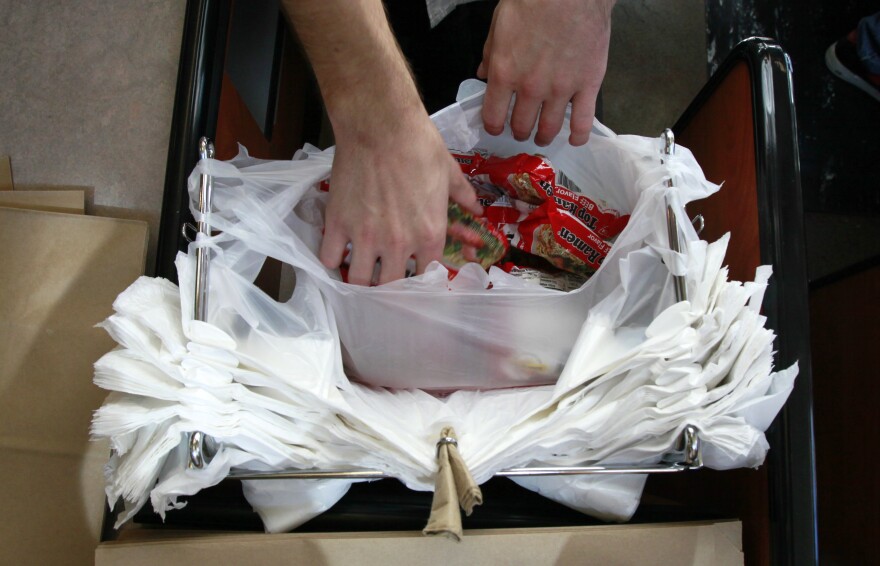A coalition of state legislators, environmental groups and retailers have proposed a sweeping ban on single-use plastic bags. If approved, Washington would join just two other states in the nation to impose the statewide restriction.
State Sen. Kevin Ranker from Orcas Island and state Rep. Strom Peterson from Edmonds – both Democrats –announced this week that they’ll introduce companion bills in January, when the next legislative session begins in Olympia.
The proposed statewide ban has the backing of seven big environmental groups. Many describe how tons of thin plastic bags float out to sea, feeding swirling gyres of garbage patches in the world’s oceans and choking all kinds of marine life along the way. Fish, birds, whales and other wildlife mistake plastics for food, ingesting the foreign substances. The bags also quickly degrade into so-called "microplastics," tiny particles that stick around for decades. These are showing up in local rivers and streams.

“We’ve actually found microplastics in 93 percent of our water samples, which is very alarming,” said Chris Wilke, executive director of Puget Sound Keeper Alliance, an organization that conducts regular tests of water quality as well as weekly surveys of the Puget Sound watershed.
Wilke says thin plastic bags are one of the most common items they find during clean up events.
“Plastic actually absorbs pollutants – up to a million times times their concentration in the water surrounding it. So they actually serve as vectors for pollution,” Wilke said. “And if they are ingested by marine animals or ultimately by people if we eat seafood, we are now ingesting those pollutants.”
He says the proposed bag ban is a pretty easy way to put a dent in this problem. Other large environmental groups backing the proposal are Environment Washington, Surfrider Foundation, Zero Waste Washington, The Seattle Aquarium, Point Defiance Zoo & Aquarium and Woodland Park Zoo.
The proposal also has support from many large grocery chains, such as Fred Meyer and Safeway. Executives with the grocers say a statewide ordinance would be easier to follow than the 23 different policies that have passed in local jurisdictions.
Holly Chisa, a lobbyist with the Northwest Grocery Association, says the group's support is partly about consistency.
“It is much easier for those retailers that operate in all 39 counties across the state to have one expectation of how they’re going to handle those bags,” she said.
The language of the bills is still being finalized, but the proponents say they would outlaw single-use plastics and encourage customers to bring in their own reusable totes by charging 10 cents for paper bags. Retailers would keep that fee to offset the cost of the transition. Shoppers using food-stamp benefits would be exempt from the charge.

One opponent of the ban is Todd Meyers, environment director for the conservative Washington Policy Center. He says reusable totes are not necessarily better for the environment if you consider their carbon footprint, and encouraging more use of biodegradable plastics would be a better policy.
A similar statewide proposal failed in 2012. If this one passes, Washington will join the ranks of California, which previously passed similar legislation, and Hawaii, which has a de facto statewide ban after all its islands implemented the policy.







